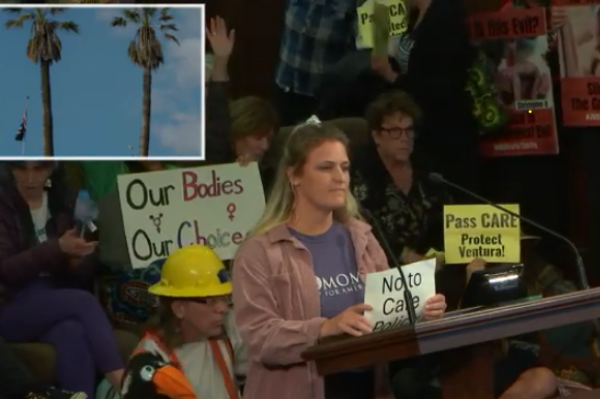Malaria Spurs Christians to Trade Lunch for Mosquito Net
Christians are taking action against the preventable disease that kills 20 percent of African children under the age of five by giving up lunch on Malaria Awareness Day on Apr. 25.
The United Methodist Church, which has been at the forefront of combating Malaria, is urging its members and others to skip lunch on Wednesday and donate the money to send an insecticide-treated sleeping net to Africa through its campaign Nothing But Nets.
"Malaria kills a child every 30 seconds in Africa," said Bishop Janice Riggle Huie, president of the United Methodist Church's Council of Bishops, in a written statement.
"Bed nets are the most cost-effective way to protect children from the mosquitoes [that] carry this killer disease," she added.
"This is an easy, tangible way to make a difference."
The denomination calls on people to donate their $10 lunch money to buy and send a bed net to a family in Africa to protect their children from mosquitoes that carry the disease.
Malaria, a preventable disease, kills about one million people a year with about 90 percent of the mortality being children. Death and illness caused by malaria is also estimated to cost Africa about $12 billion a year in lost productivity.
"Nothing But Nets is a visible part of our long-term commitment to eliminate malaria," Huie stated. "Providing comprehensive health care to the developing nations of Africa is a long, difficult process. It will need to continue for generations."
The malaria campaign, founded with partners including Sports Illustrated and the National Basketball Associations' NBA Cares, is getting a boost in recognition and funds through a two-night special on "American Idol" called "Idol Gives Back," Apr. 24-25. The group hopes to use the show's popularity to increase awareness of malaria and raise funds through corporate sponsors of "Idol" and viewers.
"'American Idol' provides the opportunity for millions of people to get the message," commented Bishop Thomas Bickerton, president of United Methodist Commission on Communication, in a statement.
Meanwhile, another Christian group which is concerned about Africa's children has announced plans to boost its funding for malaria by nearly $2 million.
Compassion International – one of the world's largest Christian child-development organizations – announced a day ahead of Malaria Awareness Day that it aims to raise funding for the disease in fiscal year 2008, beginning in July.
The group aims to provide Compassion-assisted children and their families with mosquito nets, malaria prevention education and access to medical treatment.
"Compassion's malaria program is all about saving lives; it educates our beneficiaries about prevention and treatment and aids families through the provision of long lasting insecticide treated nets," said Amy Metzger, Compassion international health program specialist, in a statement.
"By helping our beneficiaries combat malaria, we are helping them to be more productive in school and work," she added. "These are steps in the right direction that enable countries to gain momentum, becoming more economically viable and educated."
Traditionally, Apr. 25 has been observed as Africa Malaria Day since 2001. But this year President George W. Bush, also a United Methodist, proclaimed for the first time the day as Malaria Awareness Day in the United States.






















